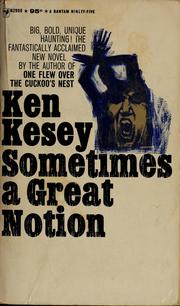

I’m not 100% sure what’s going on with this subplot where Joe B (Richard Jaekel) and his wife apparently attend the Church of God and the Metaphysical Science…so maybe they’re cult members too? That never really gets delved into, which is a head scratcher.It appears that I’m supposed to think Henry Fonda, as the patriarch of the Stamper clan, is a charming old coot, like an Archie Bunker type, complaining about Commie pinko socialists and calling his estranged son a New York fairy.As independents, they take the union’s former contracts and as the film goes on, the consequences of that choice become larger and larger, and depending on your perspective, this is either an indomitable tale of the perseverance of the human spirit or a disheartening look at everything that makes America the end-stage capitalist nightmare it currently is. Basically this 1971 film is the second that Paul Newman directed, and it tells the story of the Stamper family, a family who run an independent logging business in a town where the local logging union has gone on strike. It’s incredibly hard to track down, which says more about how easily lost our film history and culture can be as we move from format to format rather than its quality as a film, but that is another conversation. While the music over the soundtrack at times seems a little too much it generally has a nice folksy feel and it doesn’t hurt to have country music icon Charley Pride singing over the opening credits.Īfter years of being out of sight, the film turned up on blu ray from Shout Factory giving Newman fans a second chance to see this and hopefully others to discover it.This is one of those old movies my mom requested that we couldn’t even find at our local library.

Other than a few shaky camera moments his direction is fine here behind the camera as well with some helicopter shots and logging scenes done over some beautiful scenery. Perhaps understandable when it has to compete with a rather large number of top flight films Newman starred in as we look back.

While this is no Newman classic, it deserves a better fate than it’s been given. One opposite Sarrazin and the other opposite himself. He received an Oscar Nomination here and looks like he could have gone on playing Newman’s brother in future film projects.Īs for our female lead, Lee Remick does fine work here and Newman spotlights her in a couple of scenes where she really shines. A favorite character star Jaeckel has the most memorable role of his long career that started back in 1943’s Guadalcanal Diary. Sarrazin was the young actor of the moment and is fine here opposite some long time pros( it would have been really interesting to see Peter Fonda in this role). Fonda does well playing opposite Newman and they share a nice chemistry together, especially in the early scenes. Aside from Newman, the actors that have been cast are well suited to their roles. The family motto is “Never give an inch” which also served as the title that this film was given for it’s network television release and played under that name for years on late night airings. Once again he has found a character that captures us and keeps us interested in the outcome of his future. This fits in well with the Newman persona as we know he made a career out of characters that stood just outside of the main stream society. Even the home they live in sits on a small island off shore from town. They have always been outsiders and don’t exactly have many friends in the community. The underrated Lee Remick turns up as well as Newman’s long suffering wife.įonda and family are independent loggers in a unionized town. We get a first rate cast alongside Newman including Henry Fonda as the head of the family, a career role for Richard Jaeckel and as the black sheep Michael Sarrazin. There’s plenty to enjoy here from this Newman effort that was originally a novel from Ken Kesey of “cuckoo nest” fame. This saga of a stubborn family of loggers pitted against the local union and on going strike offers us the first film that Paul Newman not only starred in but directed as well.


 0 kommentar(er)
0 kommentar(er)
